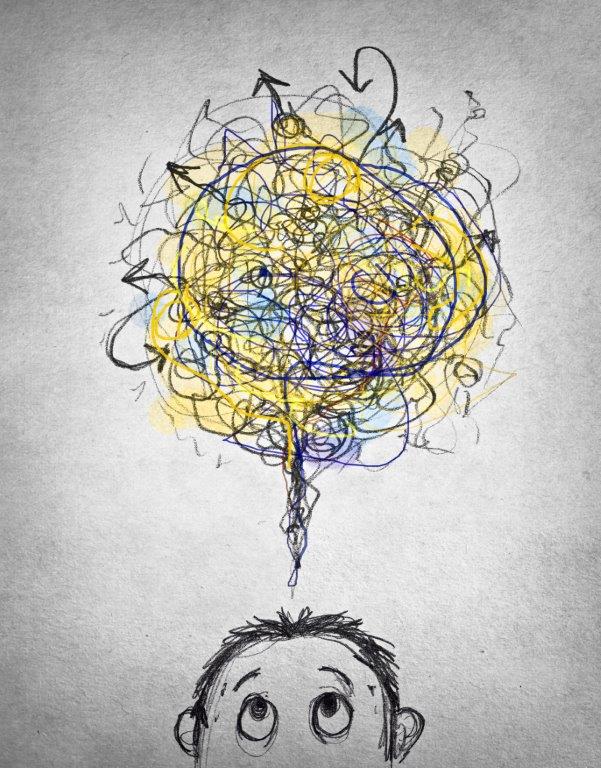 ~ by Terri Mudge ~
~ by Terri Mudge ~
Learning to Let Go of the Thoughts that Torture Us
Our brains are amazing. All day long we can be thinking, planning, evaluating, wishing, wondering, working, trying, and noticing. All this activity going on in our heads, invisible to others, can be good or bad. What do you do when you have negative thinking that randomly appears and it won’t go away?
Those thoughts rumble through our minds. We may have had these thoughts before. They wake us up in the middle of the night. They catch our attention in the middle of the day, when we are trying to focus on an important task or just trying to enjoy a pleasant moment.
What happens when our brains don’t seem to be going in the direction that we want them to? What happens when it seems to get ‘stuck’ in a thinking loop, stuck in judging, stuck in wishing, stuck in trying, or like a broken record – stuck with the same song playing over and over again? This is when our minds can cause us a lot of distress.
Maybe I can help! Here are four things we can do to help ourselves, to help our mind to get un-stuck from its distressed state of mind and a few things NOT to do.
How to Get UnStuck
#1 Tune into the senses
You can pause, take a moment to connect with the world through your senses – seeing, smelling, tasting, touching, and hearing. One way to do this is to take a mindful walk, and notice all of the sights and sounds that you can notice.
#2 Find a Different Perspective
Open up to the possibility that your negative thoughts may look different from a different perspective. For example, how will this particular event/situation/perception change over time? Will it look the same in 3 months or 3 years?
#3 Give Yourself Permission to Worry – Once
Worry well, and worry once. Give yourself permission to worry for a given amount of time. And, really do a good job of it. Put all your attention to the task of worrying about your particular dilemma. Write down all the possible scenarios that could happen, and all the ways that this situation is distressing to you. Do a good job of getting all of your thoughts down on paper. Then, when your time is up, go and do something else. If the thought comes up again, say, “Oh, I already worried about that, I am finished with that one.” (This idea comes from my favorite anxiety self-help book: The 10 Best-Ever Anxiety Management Techniques, by Margaret Wahrenberger, August 11, 2008)
#4 Distract Yourself
Think of that list of the many things the mind can do. Find something else to ask your mind to do instead of being stuck in these negative thoughts.
3 Things NOT to do.
#1 Don’t Keep Trying to Figure It Out
The mind has a habit of trying to solve problems and that’s what it was designed to do. The problem is, if you’ve already written down your thoughts and spent time seeking different perspectives, you have already spent plenty of time on this. It is now time to stop. Trying to find more possible solutions is not working. So don’t do it. It’s not that it’s the wrong thing to do, it’s just not productive.
#2 Don’t Think Positively.
Ok, I know, thinking positively is usually a good thing. I love to look for the bright side of something, but if you have already been trying that and it’s not working for you, then give it a rest. It may be just one more way that your mind is stuck.
#3 Don’t Try to Forget About It
Yes, forgetting seems like a logical strategy. However, this one can definitely backfire on you. Have you heard about the white bear experiment? This and many other studies have showed that the more you try not to think about something, you set yourself up to think of it even more. So let the thought be there, and try to create a different relationship to the thought. Open yourself to the fact that your mind doesn’t have all the answers. Acknowledge that it is OK to have this thought and it is OK that right now you don’t know what to do about it.
We all get stuck sometimes in our thinking. It happens to everyone. The most important thing to remember is that these thoughts will eventually go away. Believe that and keep on going.
It’s okay to let your mind wander toward thinking, planning, evaluating, wishing, wondering, working, trying, or noticing. We can recognize the random nature of the mind, there are so many possibilities!



